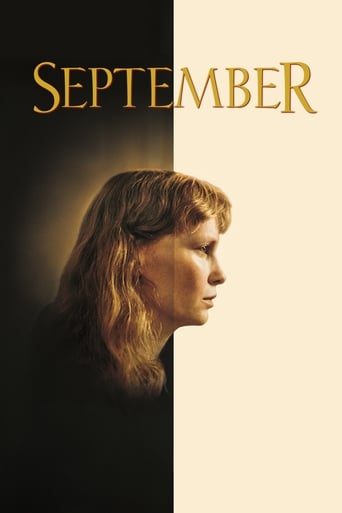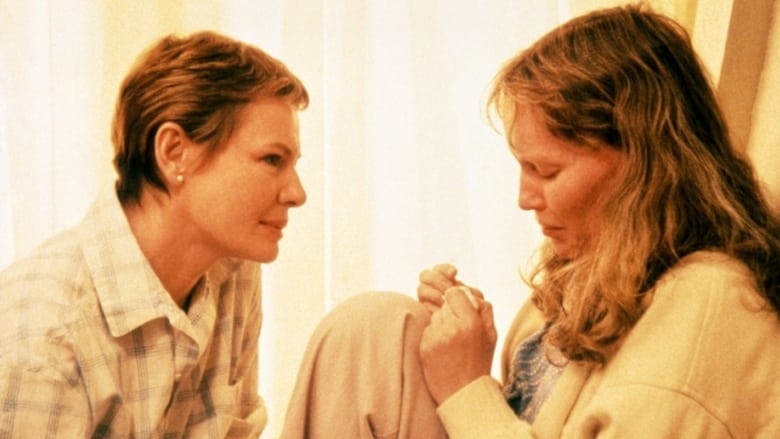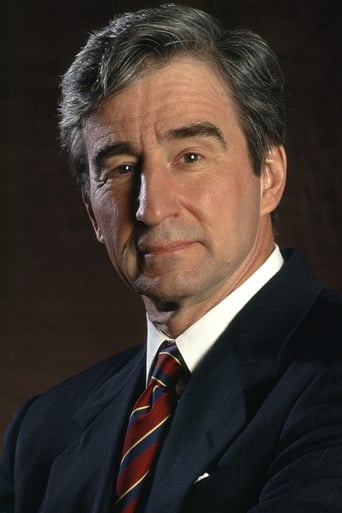September (1987)
After a suicide attempt, Lane has moved into her country house to recuperate. Her best friend, Stephanie, has come to join her for the summer. Lane's mother, Diane, has recently arrived with her husband Lloyd, Lane's stepfather. Lane is close to two neighbors: Peter, and Howard. Howard is in love with Lane, Lane is in love with Peter, and Peter is in love with Stephanie.
Watch Trailer
Cast


Reviews
A small, intimate, low-key drama from Woody Allen; though not as obviously experimental as, say, "Stardust Memories" or "Zelig", it is still a departure for him in the sense that the "action" is limited inside one house, and there aren't even any exterior shots. But the topics it deals with are pure Allen: love without response, family problems, aging, creative block, guilt, missed life opportunities, etc. Despite the talkiness and the extensive soul-searching in "September", it's not a particularly heavy or inaccessible movie; the characters are recognizable and human, and brought to life by a fine ensemble. After choosing an extremely pessimistic ending for "The Purple Rose Of Cairo" and an extremely optimistic one for "Hannah And Her Sisters", Allen takes the middle path this time: he concludes that life must go on, and people must try to find meaning and happiness, and maybe they will, or maybe they won't. If you're in the mood for it, "September" is a very involving film. *** out of 4.
Woody Allen's dramas aren't the cup of tea of most audiences but the ones who have the patience and understanding of what this genius is trying to do are certainly rewarded. Flowing like a play, "September" takes place in a summer house in Vermont where three couples are vacationing in a relative tranquility that is about to be disturbed a little when some of them fully realizes they married the wrong partner and they want to live the right one.So, we have Lane and Peter (Mia Farrow and Sam Waterston), Stephanie and Howard (Dianne Wiest and Denholm Elliott) and the veterans Diane and Lloyd (Elaine Stritch and Jack Warden) and here's how things turn between part of them: Howard loves Lane and she seems connected with him but she can't leave her husband, who is deeply in love by Stephanie, who is trying to resist his attempts for her. While these four are clinging to their own feelings, remembering the past and all, the older couple (Lane's mother and her step dad) seems to be having a good time and making some plans for the future that might upset the eternally depressed Lane.With this crossed couples and their broken hearts, Allen touches us by saying that we shouldn't be attached to anything. We shouldn't be so attached to other people (because they disappoint you no matter the relations you had with them); we shouldn't be attached to things (as later is shown when Lane's mother wants to sell Lane's house and we have this huge argument about the good connection, the memories they had with the place); and most of all we shouldn't be so attached to our memories (perhaps the most dangerous of the ties). But, we're human beings and this sense of being connected with something or somebody is what makes us different from other creatures, so how do we end with? How do we make things in the way of not suffering? What does this character will make with their lives? Us and them are going to still be living in the same old contradiction of all, doing the things we don't want to, maybe one day, get the things we really want. And it all happened in that crazy month of August (if you pay attention the story takes place in August, not September). How's things going to be in September, the future? Who can tell?It's a minor work by Woody, who seemed to be looking for perfection with such fine material that he filmed one version with different actors (Sam Shepard, Charles Durning and Maureen O'Sullivan replaced by Waterston, Elliott and Stritch) to later make this final version cause he saw things weren't working the way he wanted with that cast. I don't know why such demands (it cost a lot in his budget and the movie failed at box-office, and now it's one of his more obscure works, his least known); the script is well written, Allen at its best with dialogs and inspired dramatic moments (exchanges between Stritch and Farrow are amazing, the whole cast is brilliant). If you found it must be watched because of its great cast and the compelling plot Allen creates with these characters. I dare to say "September" is one of his finest works. 10/10
Woody Allen's cringe-inducing "September" comes across as something a film student would make if he were given the assignment of making a movie in the style of Ingmar Bergman. It's oppressive, claustrophobic and intolerably whiny, filled with unpleasant people complaining about their boring problems. Though the film is filled with good actors, like Mia Farrow, Elaine Stritch, Dianne Wiest and Denholm Elliott, none of them gel as a cast, and the pacing is repetitive. The film is a huge misfire from Allen, and thankfully it's one of the last times he dabbled in this kind of hackneyed experiment.Grade: D
Mia Farrow plays suicidal Lane, a child-like woman hoping to sell off the family cottage in Vermont so she can start life anew in New York City; she's surrounded for the weekend by her married friend (Dianne Wiest), a charming, struggling writer (Sam Waterston), an elderly neighbor who harbors a crush on Lane (Denholm Elliott), and Lane's demonstrative mama (Elaine Stritch) and her latest husband (Jack Warden). Seems mother and daughter were once the subjects of a scandalous murder-trial from years ago (shades of Lana Turner and daughter Cheryl), and Lane's emotional showdown with her mother provides an intense acting moment between Farrow and Stritch. Claustrophobic Woody Allen drama was one of the writer-director's biggest commercial and critical failures (he filmed it twice with two separate casts--this is the second version, the original remains unseen). It's a nearly-humorless study of the dangers of repression, yet the picture doesn't learn from itself--the handling is repressed as well--and few of these characters seem improved by the finale. Allen's languid pacing nearly comes to a halt during an electrical storm (at just 85 minutes, "September" doesn't exactly utilize its time wisely); however, this group of privately-tortured souls is as fascinating as the family in Allen's "Interiors." In fact, of the two films, this may be the better effort. *** from ****







